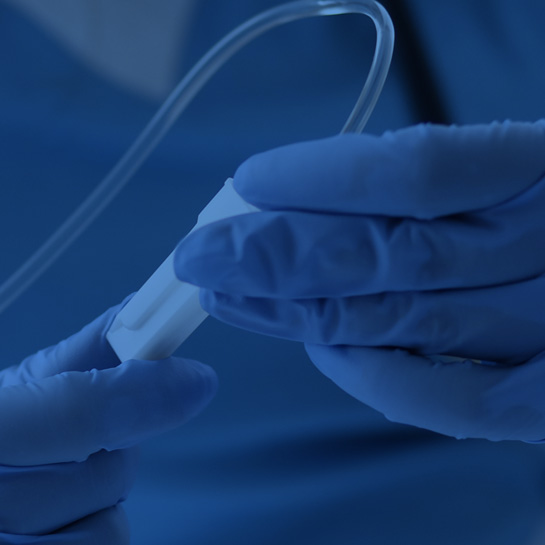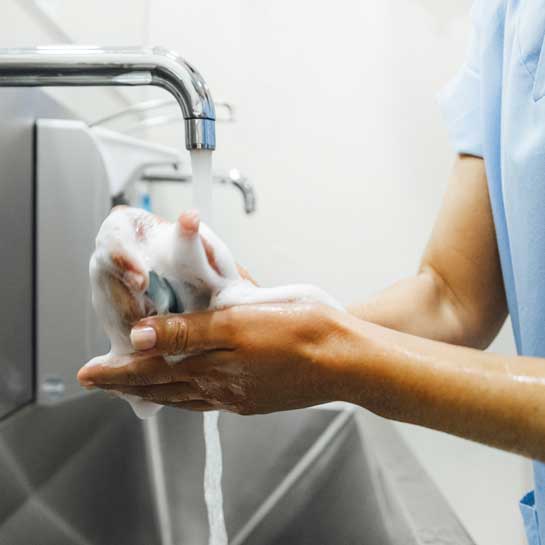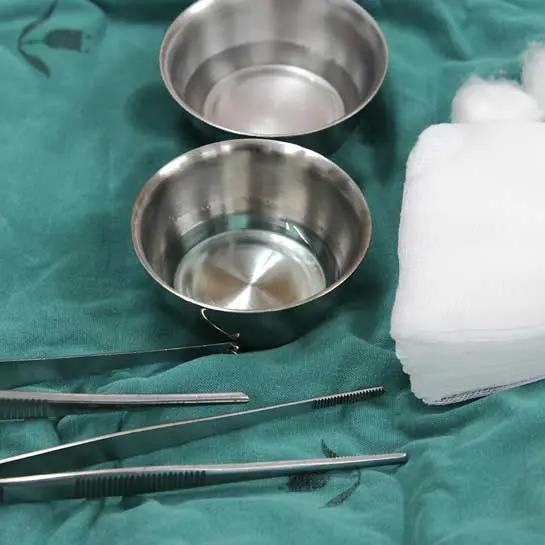Antibiotic Stewardship & Epidemiology Programs
Infectious Disease Epidemiology & Antibiotic Stewardship
The main focus of our infectious disease epidemiology and antibiotic stewardship program is to provide the highest quality infectious diseases services to our patients, our communities, and our partners at healthcare facilities across the state. We implement strategies proven to minimize or negate healthcare-associated infections (HAIs) in a variety of clinical settings — including but not limited to hospitals, nursing homes, ambulatory surgery centers, and rehabilitation facilities.
By identifying problems, collecting and analyzing data, as well as providing intervention through changes in policies and procedures, our comprehensive antibiotic stewardship programs are proven to improve the safety and capabilities of clinical organizations and facilities drastically. Our leadership has already helped our partners claim a position among the highest performers in this sector across the state. Through diligent antibiotic stewardship, our healthcare partners boast some of the lowest levels of antibiotics with the highest level of effectiveness for patients.

We're making strides to improve healthcare institutions across the state.
We’re making strides to improve healthcare institutions across the state.
As recognized leaders in healthcare epidemiology, infection control, and antibiotic stewardship, we leverage our specialized knowledge in microbiology and biostatistics to make advances in emerging diseases and conditions. By regularly collecting and analyzing data to determine the effectiveness of infection prevention and antibiotic stewardship practices, we continue to maintain success in both staff and patient safety.
Our team of physicians and staff are available 24/7 to respond to questions and/or issues affecting the implementation of infection prevention measures, antibiotic stewardship, and infectious disease epidemiology — consistent with the established policies of our partners and statutory requirements of all licensing agencies. Click a focus area below for more details on our leading-edge antibiotic stewardship programs.
Infection Prevention
Our proactive, collaborative, and multidisciplinary approach to infection control reaps significant benefits in patient safety by reducing infection rates inside and outside healthcare institutions — it continues to prove vital for our partners. By reviewing, approving, and guiding the revision of all infection prevention-related policies and procedures, our team:
- Has a proven track record of successfully reducing the rate of infection — including the development of surgeon-specific reporting for surgical site infections
- Ensures full compliance and adherence to The Joint Commission and the New Jersey Department of Health (NJDOH) rules and regulations, with constant availability to support any surveys, investigations, and inquiries in this regard
- Monitors and maintains surveillance of all rules, regulations, guidance, and requirements affecting implementation of infection control practices, including universal precautions in accordance with the Occupational Safety and Health Administration (OSHA), aseptic technique, and employee training in regard to infection prevention — all to ensure a safe and conducive environment for both staff and patients
- Monitors control measures or studies to be initiated following identification of infection prevention issues and surveillance techniques to classify and minimize transmission of infection accurately
- Consistently demonstrates dramatic savings by reducing healthcare-associated infections (HAIs) in numerous hospitals
- Determines the most cost-effective utilization of resources related to infection prevention and infectious diseases — most recently though a MRSA controlling program in an ICU which resulted in $500,000 savings to the institution and significantly reduced the risk of death
- Reduces the incidence of Catheter-associated Urinary Tract Infections (CAUTI) and secondary bacteremia, hospital-acquired pneumonia, surgical site infections, and primary bacteremia in high-risk patients
Antibiotic Stewardship Policy
What is antibiotic stewardship?
According to the CDC, antibiotic stewardship is the effort to measure and improve how antibiotics are prescribed by clinicians and used by patients.
Improving antibiotic prescribing and use is critical to effectively treat infections, protect patients from harms caused by unnecessary antibiotic use, and combat antibiotic resistance. At ID Care, we take antibiotic stewardship very seriously, because we know how important it is for healthcare facilities and their patients.
As one of the nation’s best Antibiotic Utilization Program in the country, our team continues to support healthcare facilities in their quality improvement efforts. The antibiotic stewardship programs we’ve implemented are responsible for:
- Actively managing an antibiotic formulary that is proven to enhance care by reducing Clostridium difficile (C. diff), sepsis, and the development of multidrug-resistant organisms (MDRO)
- Ensuring physician participation with pharmacists to accurately and effectively guide antibiotic stewardship for antibacterial, antiviral, and antifungal medications
- Assuring antimicrobials are optimized consistent with national standards for Antimicrobial Stewardship — the right drug with the narrowest spectrum for the appropriate duration of therapy
- Significantly lowering the cost per patient, per day, for antibiotic therapy
Microbiology Laboratory Consultation and Oversight
ID Care’s oversight of the microbiology laboratory includes several vital roles to maintain efficiency and cost-effective services that are consistent with advanced clinical standards. By directing, collecting, and reporting critical data and information for institutional and oversight purposes* we:
- Evaluate microbiology utilization and interpretation
- Help to maintain compliance with identifying and monitoring nosocomial infections
- Control and manage facility outbreaks, environmental assessments, and antibiotic formulary
- Reduce test utilization for microbiology services
- Set guidelines on the proper use of microbiology laboratory tests to limit false, misleading, or incorrect results that lead to inappropriate treatment
- Maintain a superb benchmark rate of a low blood culture contamination of ~1-1.5%
- Ensuring that the system for investigating, reporting, and evaluating the occurrence of all infections or diseases which are reportable, or conditions which may be related to activities and procedures of the healthcare institution — per N.J.A.C. 8:57 (Communicable Diseases)
*Driven by standards from The Joint Commission, Centers for Medicare and Medicaid Services, The Department of Health, and others.
Healthcare Worker Protection
Our efforts in healthcare worker protection include:
- Providing physician consulting services for needle sticks, infectious disease exposure, outbreak evaluation and management, and other employee health matters related to transmissible diseases
- Maintaining up-to-date programs for Healthcare Workers Protection of preventable diseases such as bloodborne pathogens (HIV, Hepatitis B and C, Measles, Whooping Cough, Tuberculosis, and Influenza) through actionable plans for vaccination, needle stick, and body fluid exposure reduction
- Reducing or eliminating healthcare-associated infections (HAI) for patients to help control costs, improve patient safety, care quality, and patient satisfaction
- Evaluating products for their benefit to patient and employee safety and reduction of nosocomial infections to assure that a proper cost-benefit analysis is complete
Other Programs
Our team also offers comprehensive programs focusing on:
- Providing expert content support for all survey and licensing agencies
- Clinical research to coordinate activities of industry and NIH sponsored clinical research for patients with HIV, hepatitis, or other healthcare-associated infections (HAIs)
- Supporting activities for bioterrorism preparedness and public health’s response to a natural disaster
To learn more about our personalized healthcare infectious disease epidemiology programs, please contact Ronald Nahass, MD, MHCM, President, ID Care at 908-281-0221.








